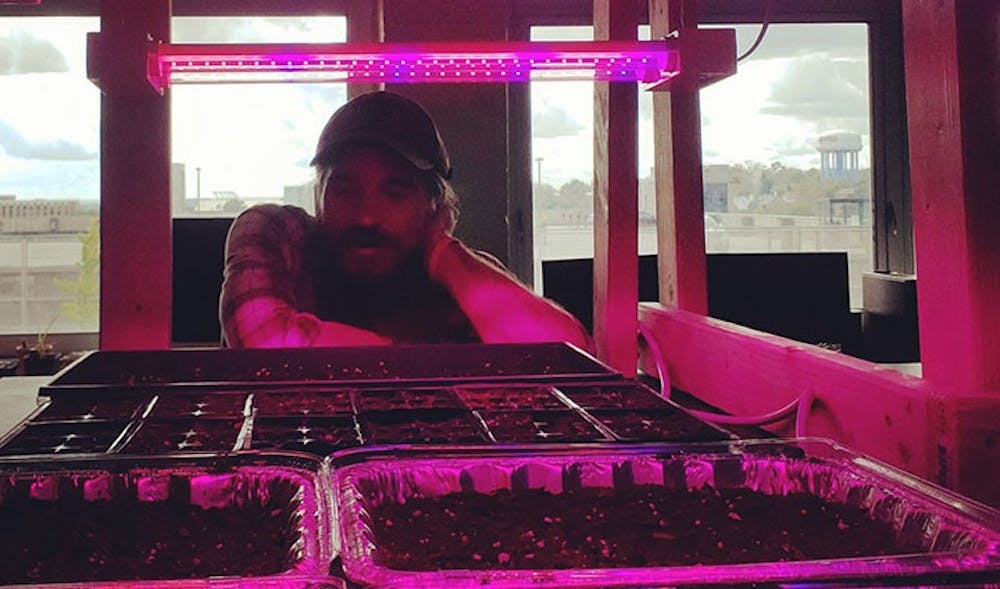While the majority of professors and graduate students who began conducting research before the pandemic hit are able to continue their projects in some capacity, COVID-19 has paused research that requires travel, according to USC Provost William Tate.
An assistant professor in the department of physics and astronomy, Steven Rodney was up for tenure review when campus shut down. Since there are research requirements for tenure-tracked faculty members, experiencing complications with research can negatively impact the path to achieving tenure or being promoted.
Rodney said because of this, a COVID-19 pause was offered to all professors, which would delay their tenure clock for a year. Rodney, who conducts astrophysics research, opted not to choose that option.
"I decided that it was not necessary for me. My work in astronomy carried on pretty well uninterrupted," Rodney said.
Rodney also said his department never closed the labs, although it was required to adopt new safety protocols.
"For the most part, in physics — as far as I know — we proceeded fairly well and uninterrupted," Rodney said. "Of course, they do have to maintain proper social distancing, so they had to put in new requirements for like, only one student in the lab at a time, and they had to sort of check in and check out to make sure that they weren't letting students overlap when they were using the equipment there."
Pete Tereszkiewicz, a graduate student who is working in geography, said his research specifically focuses on dune systems and how those recover after hurricanes. However, with labs in his department closing temporarily last March, he was unable to test new equipment he received until late July.
"Instead of being able to test the sensors in a lab, which we need to do ... I had to try to test them at my house, but it just didn't work," Tereszkiewicz said. "Right now, I'm still building a lot of the stuff that I would've had done in like May or even June because the instruments came in March."
Tereszkiewicz said the minor delay isn't an issue because of the nature of his funding, as he received thousands of dollars worth of equipment from a private instrument company named METER after winning the Grant A. Harris Fellowship.
Tereszkiewicz also received funds through the F. John Vernberg Bicentennial Fellowship. The fellowship only lasts for a year, but with labs open, he said time wasn't an issue.
Graduate student Mattie Atwell, whose research in biological anthropology requires travel, hasn't been as fortunate.
Atwell's research focuses on the skeletal impact of institutionalization on women who were hospitalized in state-run mental institutions in the U.S. Her focus is on what the trauma and disease that impacted women in those settings can say about how facilities such as these impact health and wellbeing.
"The collections that I work in — the two big ones — are a skeletal collection at the Cleveland Museum of Natural History, and then I also do work at the Smithsonian, and both of these institutions are closed until further notice," Atwell said.
Money for Atwell's research is funded through two grants: the Support to Promote Advancement of Research and Creativity Grant through the university and a grant through the National Science Foundation, called the National Science Foundation (NSF) Doctoral Dissertation Improvement Grant.
Previously, researchers would use their own money to conduct research and then send the university the receipts to be reimbursed through their grants. However, grant-funded researchers who need to travel face complications because of USC's travel ban. To travel at all, a researcher needs a special exemption from the university, and if the ban is broken, researchers will not be reimbursed.
"If you do travel, you can't be reimbursed with your grant money, because the grant money is held in USC's grant office. So, even if I were to go do research, the significant amount of grant money I have, I would not be able to use it," Atwell said.
The other complication that Atwell faces is that there's a time limit on her NSF grant, which expires on April 1, 2021. Without the ability to gather data currently, she might not be able to finish her research before the grant expires and could potentially lose over $20,000 of funding unless she fills out multiple government documents.
"I just wouldn't be able to finish. It would be absolutely detrimental to my success in the Ph.D. program," Atwell said.

